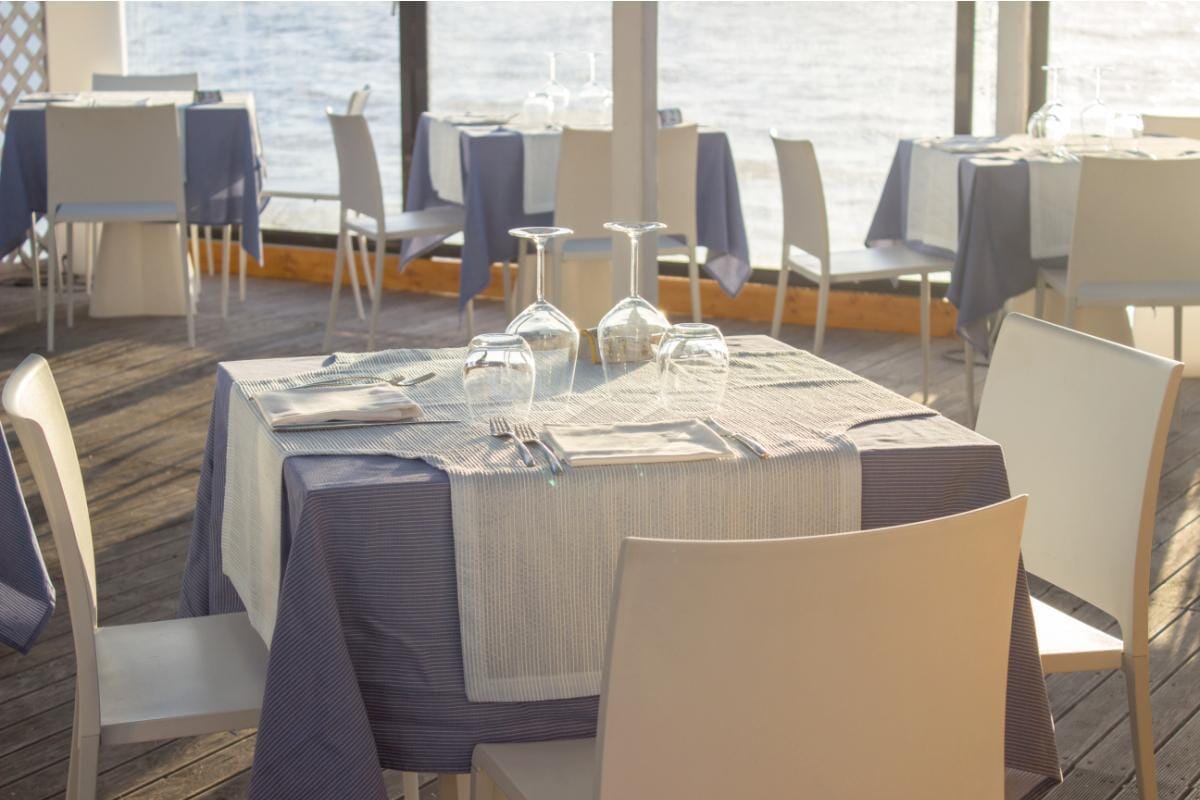
In the ever-changing world of restaurant design, the typical wooden table now has many other options alongside it. Even though wood is loved for its natural feel and comfort, restaurant owners wanting a different look or certain features have lots of choices. In this article, we'll look into some great alternatives to wooden tables that are sure to stand out.
Table Top Material
| Stainless Steel | |
Pros:
|
Cons:
|
| Aluminum | |
Pros:
|
Cons:
|
| Concrete | |
Pros:
|
Cons:
|
| Quartz/Artificial Stone | |
Pros:
|
Cons:
|
| Laminate | |
Pros:
|
Cons:
|
| Resin | |
Pros:
|
Cons:
|
| Marble | |
Pros:
|
Cons:
|
| Granite | |
Pros:
|
Cons:
|
Which type is best fit with your venue?
Each table top material brings with it unique advantages that cater to the specific needs of various commercial dining establishments. Here's a recommendation based on different types of venues:
Fast-Food Restaurants & Cafes:
- Laminate: The cost-effectiveness and lightweight properties make it ideal for quick-service environments. Its wide variety of designs can also be easily matched to a brand's colors or themes.
- Aluminum: Given its resilience and contemporary aesthetic, an aluminum table is suitable for modern cafes and fast-food joints where easy rearrangement and lightweight features are beneficial.
Buffets and Food Courts:
- Stainless Steel: Hygiene is paramount in these settings. The easy cleaning and resistance to bacteria make stainless steel an excellent choice. Its durability ensures it can withstand constant use and heavy traffic.
- Quartz/Engineered Stone: Offering a blend of durability and a more refined appearance, this is great for upscale buffets.
Fine Dining Restaurants:
- Marble: The luxurious and timeless appeal of marble table top sets the tone for an elegant dining experience. Its unique veining provides a touch of exclusivity.
- Granite: Its natural beauty and durability give a sophisticated touch to upscale dining settings.
Industrial-Theme Restaurants:
- Concrete: The rustic-modern blend of concrete is apt for restaurants aiming for an industrial or raw vibe.
- Aluminum: Its modern, industrial look complements the aesthetic, while also being functionally resilient.
Beachfront or Poolside Bars & Restaurants:
- Resin: Given its resistance to chipping and some translucent qualities, it can capture the essence of water-front venues. The ability to mix it with other materials can also create a theme-specific vibe.
- Aluminum: Its rust resistance is beneficial in humid or salty environments.
Eco-Friendly or Bohemian Cafes:
- Resin: When mixed with eco-friendly or recycled materials, it caters to an environmentally-conscious clientele.
- Concrete: Especially if sourced sustainably or locally, concrete can suit the earthy, grounded aesthetic of bohemian or green cafes.
The era of solely wood-dominated table tops in restaurants is being diversified by these innovative alternatives. Each material, be it stainless steel, aluminum, or resin, comes with its unique set of characteristics to serve both aesthetic and functional demands. Restaurateurs aiming to curate a distinctive ambiance or address specific needs should weigh factors such as durability, maintenance, cost, and design impact when choosing the ideal tabletop material.



